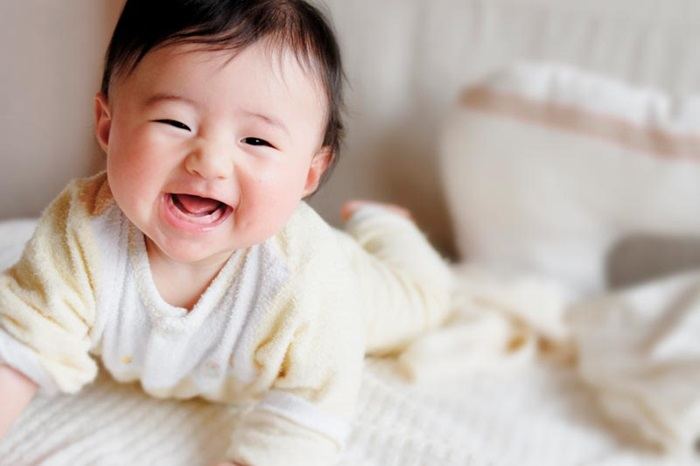In Japan, naming a baby is a significant cultural event, deeply rooted in tradition and family heritage. Traditionally, Japanese parents do not rush to name their newborn immediately after birth. Instead, they often wait until the baby is about seven days old. This period allows the parents to carefully consider the baby’s name, often consulting with family members, and sometimes seeking advice from religious or cultural advisors.
The Importance of the Seventh Day
The seventh day after birth, known as “oshichiya”, is a culturally important day in Japan. It is on this day that the baby is formally named in a family ceremony. This event is intimate and often involves only close family members. The baby’s name is written on a special piece of paper called “shikishi” and placed in a location of honor in the house. This tradition underscores the importance of the name and the thoughtfulness with which it is chosen.
Factors Influencing Name Choice
Several factors influence the choice of a baby’s name in Japan:
Kanji Characters: The meaning and sound of kanji characters are carefully considered. Parents often choose characters that convey positive attributes or aspirations for the child’s future.
Phonetics: The sound of the name is important, as it should be pleasant and harmonious. Japanese names often have a rhythmic and melodic quality.
Family Heritage: Many families have traditional names that are passed down through generations. These names hold significant meaning and represent the family’s history and legacy.
Astrology and Religion: Some parents consult with Shinto priests or Buddhist monks to choose a name that is auspicious according to astrological beliefs.
SEE ALSO: How to Name Your German Baby?
Modern Influences on Naming Practices
In modern Japan, while many families still adhere to traditional practices, there has been a shift influenced by contemporary trends and Western culture. Some parents name their baby shortly after birth, especially in hospitals where the baby’s name might be needed for documentation and medical records.
Popular Naming Trends
Popular naming trends in Japan can be influenced by various factors, including:
Media and Entertainment: Names of popular characters from anime, manga, and movies can influence baby name choices.
Celebrities: Names of celebrities or their children can set trends among new parents.
Globalization: There is an increasing tendency to choose names that are easy to pronounce in multiple languages, reflecting Japan’s global outlook.
Ceremonial and Legal Aspects
In Japan, after the baby is named during the oshichiya ceremony, the name must be officially registered. This process involves:
Notification of Birth: Parents must submit a “birth notification” (出生届) to the local city hall within 14 days of the baby’s birth. This document includes the baby’s name, date of birth, and other vital information.
Registration of the Name: The chosen name is then registered in the family register (koseki), a vital record-keeping system in Japan. The family register is an important document that includes information about family members and their lineage.
Cultural Significance of Naming
Naming a baby in Japan is more than just giving a child an identifier. It is a deeply symbolic act that carries significant cultural and familial weight. The name is believed to influence the child’s future, embodying hopes and dreams for their well-being and success.
Role of the Extended Family
Extended family members often play a crucial role in the naming process. Grandparents, in particular, may have a say in the name choice, reflecting respect for elder family members and continuity of family traditions. This collaborative approach highlights the importance of family unity and shared cultural values in Japanese society.
Gender and Naming
In Japan, the choice of name can also be influenced by the baby’s gender. Traditionally, boys might receive names that reflect strength, courage, and leadership, while girls’ names might emphasize beauty, grace, and kindness. However, these trends are evolving, with many modern parents choosing names that are less gender-specific and more reflective of individual personality traits.
Naming Ceremonies and Celebrations
The oshichiya ceremony is often followed by other celebrations, such as the “Okuizome” ceremony, which occurs when the baby is around 100 days old. This ceremony celebrates the baby’s growth and the hope for a future free from hunger. Naming, therefore, is part of a series of traditional events that mark the baby’s early life stages.
Impact of Technology on Naming Practices
Technology and social media have also started to influence naming practices in Japan. Parents can now access a plethora of resources online, including name databases, forums, and apps that suggest names based on various criteria such as meaning, popularity, and phonetics. This access to information has broadened the scope of name choices and introduced new trends into Japanese naming culture.
Conclusion
Naming a baby in Japan is a deeply revered practice that blends tradition with modernity. While the oshichiya ceremony on the seventh day remains a significant cultural event, contemporary influences are gradually shaping new naming trends. Whether influenced by traditional beliefs, family heritage, or modern trends, the name chosen for a baby is a cherished symbol of identity and aspiration in Japanese culture. Through careful consideration and cultural rituals, Japanese parents ensure that the name they choose carries the weight of their hopes and dreams for their child’s future.


